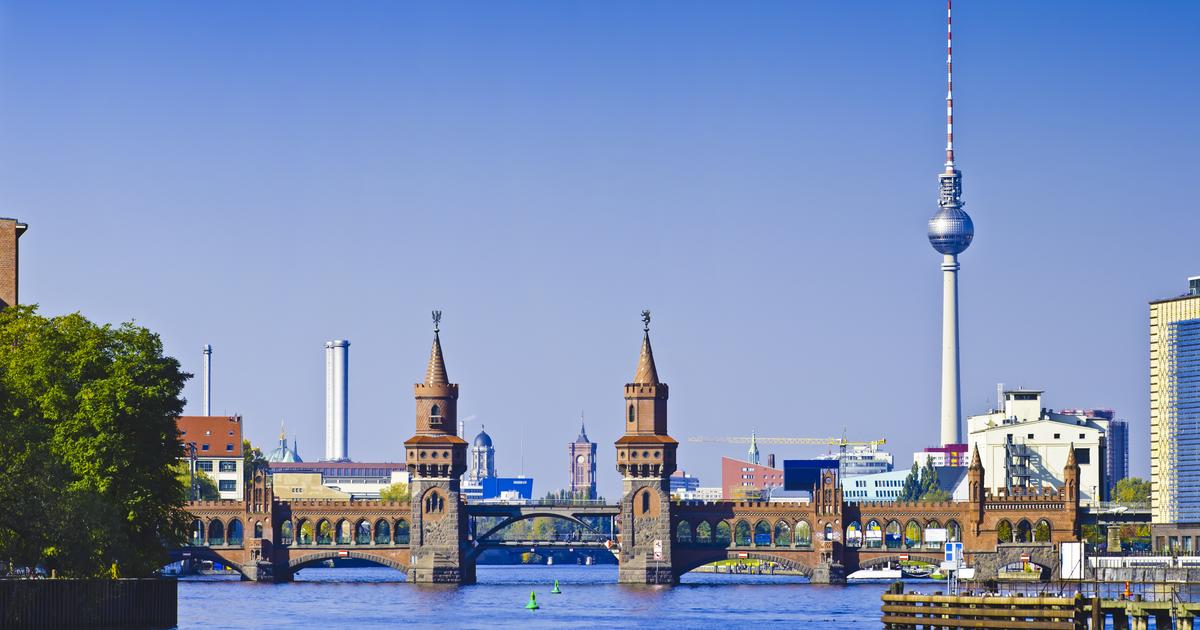Activity in Germany, Europe's largest economy, entered recession in the first quarter, a temporary weakness according to the government, but which is nevertheless at odds with the rest of Europe. The gross domestic product (GDP) fell by 0.3% between January and March over a quarter, after a decline of 0.5% between October and December, in data adjusted for seasonal and calendar variations, said Thursday the national institute of statistics. It is a recession in the technical sense, that is, two quarters of decline in a row. This is a first since the coronavirus pandemic, which caused a drop in German GDP in the first and second quarters of 2020. Over one year, the indicator fell by 0.5%. This figure, final, revises downwards a previous estimate of the end of April which indicated rather a stagnation (0.0%) of activity.
Winter recession
«
This is not a surprise, even if the scale of this revision is frightening," said Jens Oliver Niklasch, analyst at LBBW. German industry, long dependent on cheap Russian gas, was hit hard last year after Moscow's invasion of Ukraine. Supplies have been cut and prices have risen. Despite this, the economy seemed to be holding up better than expected at the beginning of the year, thanks to massive public support, increased use of liquefied gas and the beginning of a decline in gas prices since the autumn. The industry has also benefited from China's reopening and a reduction in supply difficulties in international markets, boosting exports. The prospect of a recession seemed to be receding. But "this optimism has given way to more realism (...) Germany has fallen into a winter recession," said Carsten Brzeski, an expert at ING Bank. The publication of various economic indicators for the month of March illustrated this.
After several months of increases, the output of the manufacturing sector, central to the German economic model, fell by 3.4% over one month. In particular, motor vehicle production fell by 6.5% and construction by 4.6%. Industrial orders also fell sharply in March, by 10.7% month-on-month, the most since the trough of the pandemic. And exports, essential for this sector, fell sharply, to 5.2%.
'Black sheep'
This reversal is mainly due to the decline in domestic consumption due to inflation. It remains very high, at more than 7.2% in April despite a gradual decrease. The key interest rate hikes led by the European Central Bank (ECB) to combat this rise in prices have driven the nail in, slowing down activity considerably. Abroad, the country's trading partners imported fewer products "made in Germany" than usual. The cause: "geopolitical turbulence, high inflation rates and the loss of purchasing power," according to the DIHK economic institute. Despite this slowdown, the German government remains optimistic, with a growth forecast of 0.4% in 2023. "The economy has experienced winter weakness. But we continue to expect a clear improvement during the year," the economy ministry told AFP.
Not everyone is so optimistic. The IMF forecast in April that German economic activity would contract by 0.1% this year, before rebounding by 1.1% in 2024. The German situation is indicative of its European neighbours, where the risk of recession has gradually faded thanks to lower energy prices. "Germany is widely seen as Europe's black sheep potential," says Guillaume Dejean, an analyst at Global Market Insight. In Belgium and France, economic activity increased by 0.4% and 0.2% respectively in the first quarter of 2023 compared to the previous quarter. Italy saw its GDP rise by 0.5%.

